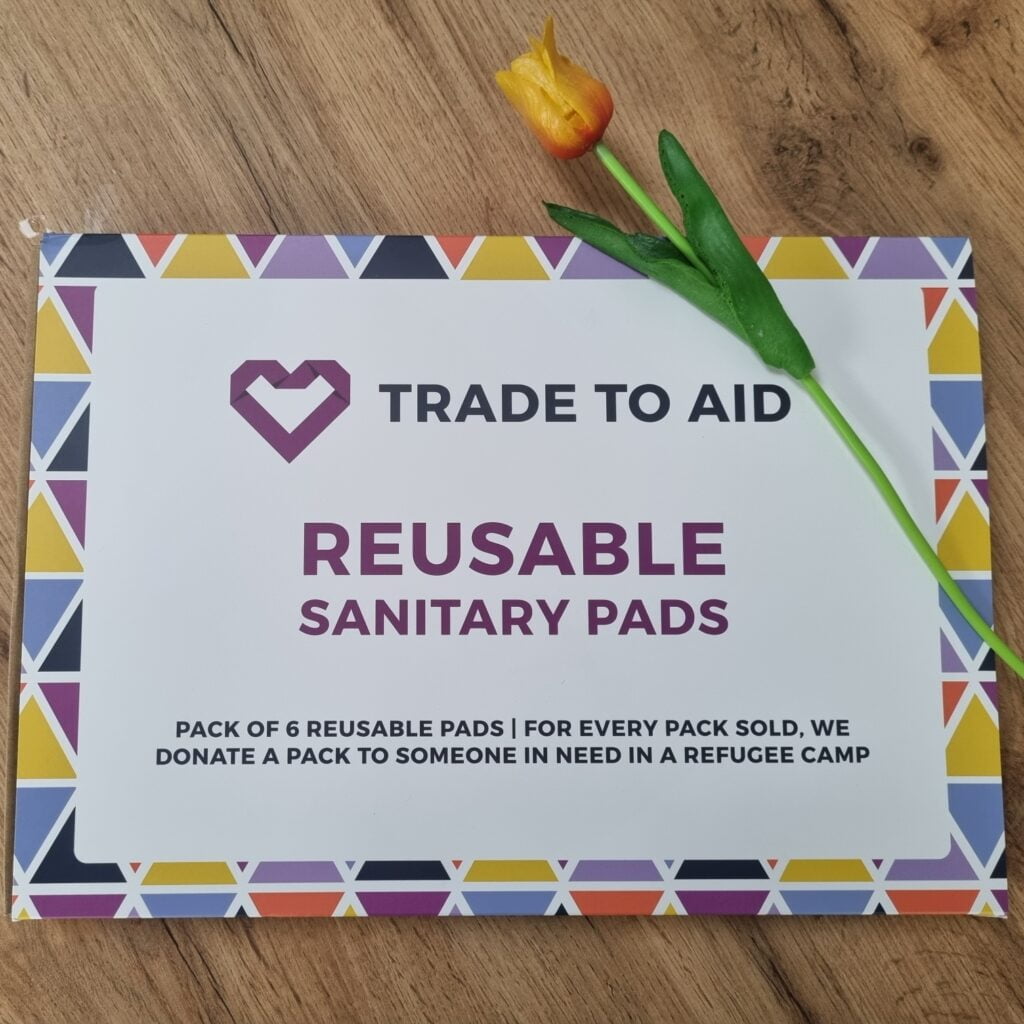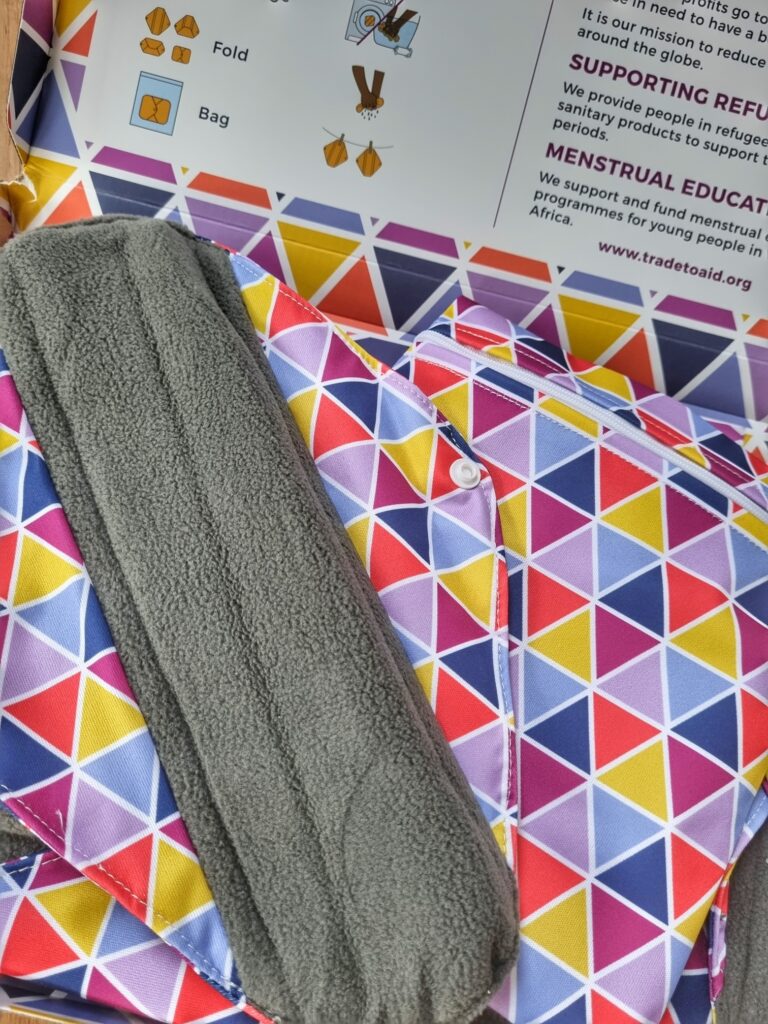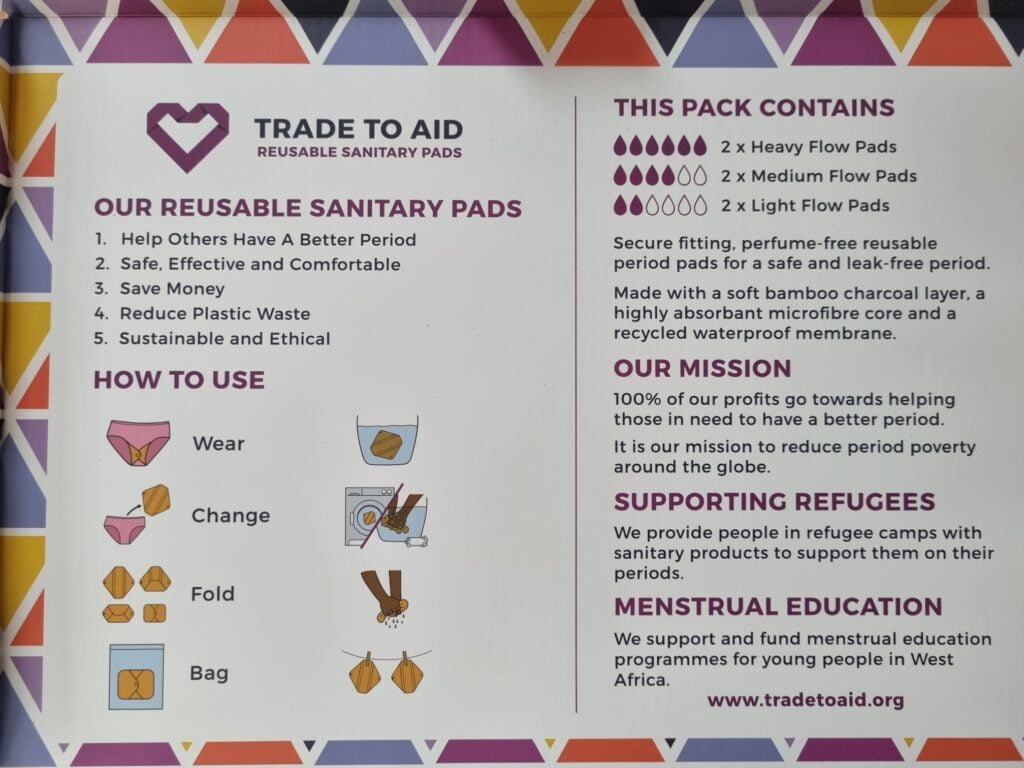Do you remember when your first period started? Do you remember how old you were and whether you had access to sanitary products at the time? So many girls and women here in the UK and of course in other countries don’t have access to sanitary products, this is known as period poverty.
Why is period poverty a problem?

As many as 3 in 10 girls in the UK struggle to access sanitary products. In Sub-Saharan Africa, UNESCO have reported that as many as 1 in 10 girls miss school during their periods. Many leave school completely after they have started to menstruate. Should such a normal and natural thing as a period, prevent a woman from gaining an education?
Period poverty keeps girls out of school, women out of the workplace, and leads many to use unsanitary items during their period which can endanger their health.
Trade To Aid pads help to fight period poverty by providing women and girls with a safe, sustainable option, which stops them from feeling shame or stigma during their period.
What makes these pads different?
Trade to Aid have joined the fight against period poverty. For every pack of our pads sold, they donate a pack to someone in need of period products.
Trade To Aid is a non-profit social business – they use every penny of the profits from selling these period pads to donate packs to people in need, and to fund menstrual education and hygiene programmes.
Their aim is to fight period poverty, tackling misconceptions and stigmas surrounding menstruation in the process.
Period poverty affects over 500 million women worldwide. This means that they do not have access to enough feminine hygiene products, or menstrual education. Meanwhile, periods are a multi-billion dollar industry for large global corporations.
Trade To Aid donates one pack of reusable pads for every single pack sold – each pack can have a massive impact on someone’s life.

Why are reusable pads better than disposable pads?
Disposable sanitary products contribute millions of tons of plastic to landfill every year. Each woman can use between 5 and 15 thousand pads or tampons during their lifetime, the vast majority of which end up in landfill or polluting the oceans.
Most disposable pad brands are over 90% plastic and contain synthetic additives, many of which are damaging to both women’s health and the environment.
Instead of throwing away your pads and committing them to landfill, you can wash and reuse Trade to Aid pads for many years.
Reusable pads provide a simple and pragmatic solution to the environmental damage caused by disposable period products.
Why switch to reusable period pads?

Many women and girls switch to reusable pads because of their ethical benefits, but stick with them because they’re comfy, secure and highly absorbent. Plus, they last for years.
Washing the pads is quick and easy. Wash by hand with soap and water, or pop them in the washing machine, and then hang them to dry. Sounds strange? We wash and reuse our socks, shirts and underwear- so why not sanitary pads?
Just one pack of reusable pads can get you started in your reusable pad journey. These are well made, easy to use and mess free due to the small bag that come with them. With different sizes for different flow levels, these are a really good option for women and girls.
I love the combined social and environmental impact of these products!
Together, we can combat period poverty and reduce the catastrophic impact that sanitary products have on the environment.


1 comment
This is really a great job, so much glad to see your efforts, reusable pads is an amazing thought, what a great inspiration you give us, Thank for share.